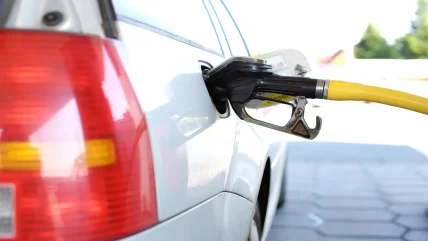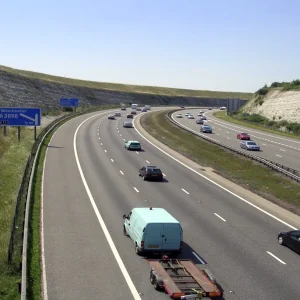
In recent years, the global geopolitical landscape has seen an upsurge in interstate armed conflicts. These conflicts, often far removed from the borders of the UK, nonetheless exert significant influence on various sectors of the UK economy. One such sector that feels the ripples of these geopolitical tensions is the van and light commercial vehicle (LCV) market. This article delves into how interstate armed conflicts affect the UK van and LCV market, examining the nuances of supply chain disruptions, cost implications, demand shifts, and the broader economic impact.
Supply Chain Disruptions
Raw Material Shortages
Interstate armed conflicts often lead to disruptions in the supply of critical raw materials. For instance, metals such as aluminium and steel, essential in manufacturing vans and LCVs, can become scarce or more expensive. When conflicts erupt in regions that are key producers of these materials, the supply chain experiences significant disruptions. The 2022 Russia-Ukraine conflict, for example, led to a spike in steel prices globally, impacting vehicle manufacturers in the UK who rely on imported raw materials.
Component Supply Chains
Beyond raw materials, the modern vehicle manufacturing process depends on a complex web of global supply chains for various components. Conflicts can sever these supply chains, leading to shortages of critical parts such as semiconductors, electrical systems, and tyres. The semiconductor shortage of 2021, exacerbated by geopolitical tensions, highlighted the vulnerability of vehicle production to such disruptions. UK manufacturers faced delays and increased costs as they struggled to secure necessary components.
Cost Implications
Increased Production Costs
Supply chain disruptions invariably lead to increased production costs. As raw materials and components become scarcer and more expensive, manufacturers must either absorb these costs or pass them on to consumers. For the UK van and LCV market, this has meant higher prices for new vehicles. The increased cost of production also affects smaller manufacturers and suppliers, who may struggle to remain competitive in a market dominated by larger, more resilient companies.
Fuel Price Volatility
Interstate conflicts, particularly those in oil-rich regions, often result in fuel price volatility. The UK, which relies on global oil markets, sees fluctuations in fuel prices reflected at the pump. For businesses that depend on vans and LCVs, such as logistics and delivery services, rising fuel costs directly impact operational expenses. This can lead to increased service costs for consumers and reduced profit margins for businesses.
Demand Shifts
Altered Consumer Behaviour
Economic uncertainty and rising costs typically lead to changes in consumer behaviour. During periods of heightened geopolitical tension, businesses and individual consumers alike may delay or reduce spending on non-essential items, including new vans and LCVs. This shift can result in decreased sales for vehicle manufacturers and dealerships. Additionally, businesses may opt to extend the life of their existing fleet rather than invest in new vehicles, further dampening demand.
Increased Demand for Certain Vehicle Types
Conversely, some conflicts may spur increased demand for specific types of vehicles. For instance, heightened security concerns can lead to greater demand for armoured vans and LCVs, particularly from businesses involved in high-risk sectors such as financial services and valuable goods transportation. Additionally, increased humanitarian and military logistics needs can boost demand for durable, versatile commercial vehicles.
Economic Impact
Impact on Manufacturing Jobs
The manufacturing sector, a significant employer in the UK, is particularly vulnerable to the economic impacts of interstate conflicts. As production costs rise and demand fluctuates, manufacturers may be forced to cut jobs to maintain profitability. This not only affects those directly employed in vehicle manufacturing but also has a knock-on effect on related industries and local economies.
Broader Economic Consequences
The van and LCV market is a bellwether for the broader UK economy. A downturn in this sector can indicate wider economic challenges, as commercial vehicles are integral to numerous industries, from construction to retail. Economic instability resulting from geopolitical conflicts can lead to reduced business investment, slower economic growth, and increased financial uncertainty.
Case Studies
The Russia-Ukraine Conflict
The Russia-Ukraine conflict provides a pertinent case study of the impact of interstate armed conflict on the van and LCV market. The conflict has led to significant disruptions in the supply of critical materials such as steel and aluminium, driving up production costs for UK manufacturers. Additionally, sanctions on Russia have complicated trade routes and increased fuel prices, further straining the market.
The Middle East Conflicts
The protracted conflicts in the Middle East, particularly in oil-producing nations, have led to sustained volatility in global oil prices. For the UK van and LCV market, this has meant fluctuating fuel costs and an unpredictable economic environment. Businesses reliant on commercial vehicles have had to navigate these challenges by implementing cost-saving measures and seeking more fuel-efficient vehicle options.
Mitigation Strategies
Diversifying Supply Chains
To mitigate the impact of supply chain disruptions, UK van and LCV manufacturers are increasingly looking to diversify their supply chains. By sourcing materials and components from multiple regions, manufacturers can reduce their dependency on any single source and enhance their resilience to geopolitical shocks. This strategy, however, comes with its own set of challenges, including increased logistical complexity and potential higher costs.
Investing in Alternative Technologies
Another strategy involves investing in alternative technologies. The push towards electric vehicles (EVs) is one such example. By transitioning to EVs, manufacturers can reduce their dependency on oil and mitigate the impact of fuel price volatility. Additionally, the development of alternative materials and manufacturing processes can help reduce reliance on geopolitically sensitive regions.
Strategic Stockpiling
Some manufacturers are adopting strategic stockpiling to buffer against supply chain disruptions. By maintaining a reserve of critical materials and components, companies can ensure continuity of production even during periods of geopolitical instability. This approach, however, requires significant investment and effective inventory management to avoid obsolescence and storage costs.
Future Outlook
Geopolitical Landscape
The future impact of interstate armed conflicts on the UK van and LCV market will largely depend on the evolving geopolitical landscape. Increased global tensions and the emergence of new conflict zones could exacerbate current challenges, while diplomatic resolutions and improved international relations could alleviate some pressures.
Technological Advancements
Advancements in technology will also play a crucial role in shaping the market. The continued development and adoption of electric and autonomous vehicles could reduce some of the sector’s vulnerabilities to geopolitical conflicts. Additionally, innovations in manufacturing processes and materials science could enhance supply chain resilience.
Policy and Regulation
Government policy and regulation will be instrumental in navigating the impact of interstate conflicts. Policies that promote energy independence, support domestic manufacturing, and encourage technological innovation can help mitigate the adverse effects on the van and LCV market. Additionally, trade agreements and diplomatic efforts to stabilise global markets will be critical.
Conclusion
Interstate armed conflicts, while often geographically distant from the UK, have profound impacts on the van and light commercial vehicle market. From supply chain disruptions and increased production costs to altered consumer behaviour and broader economic consequences, the sector faces a myriad of challenges. However, through strategic mitigation efforts, technological advancements, and supportive policies, the industry can navigate these turbulent times and continue to thrive. For businesses and stakeholders in the van and LCV sector, staying informed and adaptable will be key to overcoming the challenges posed by geopolitical instability.





